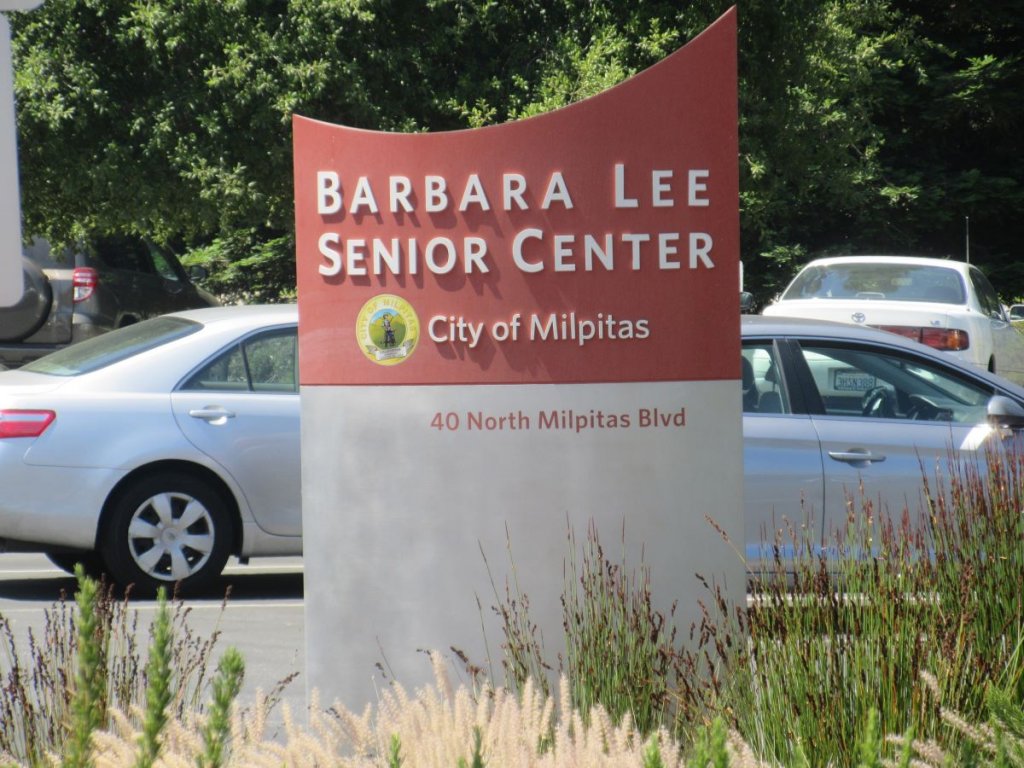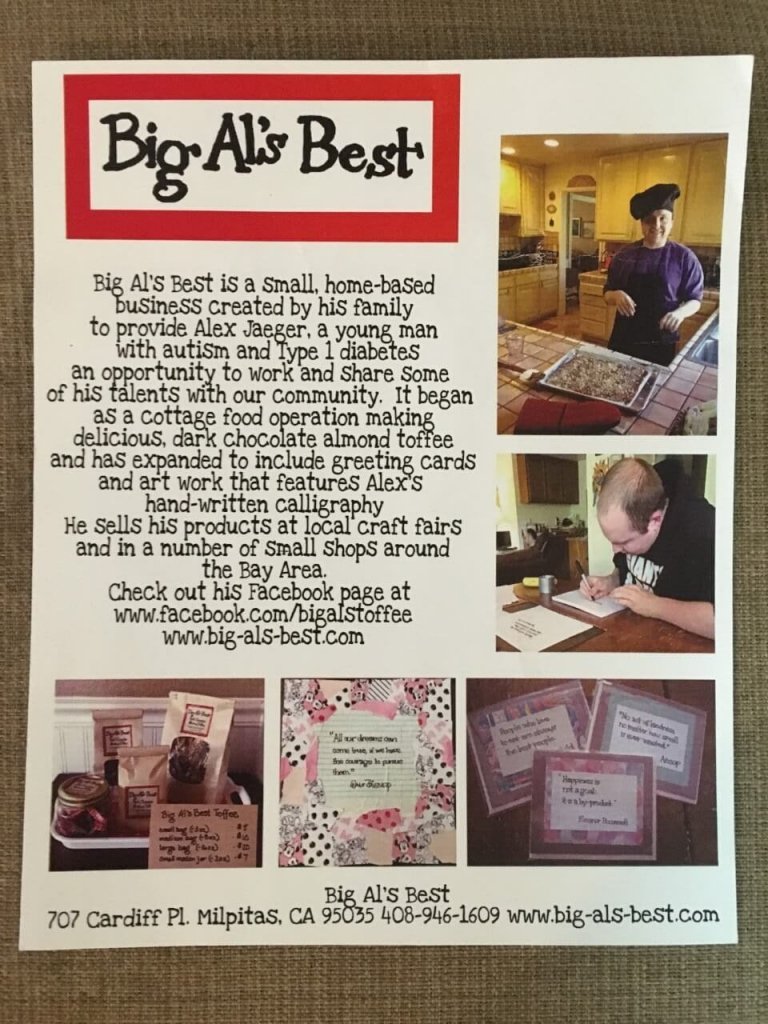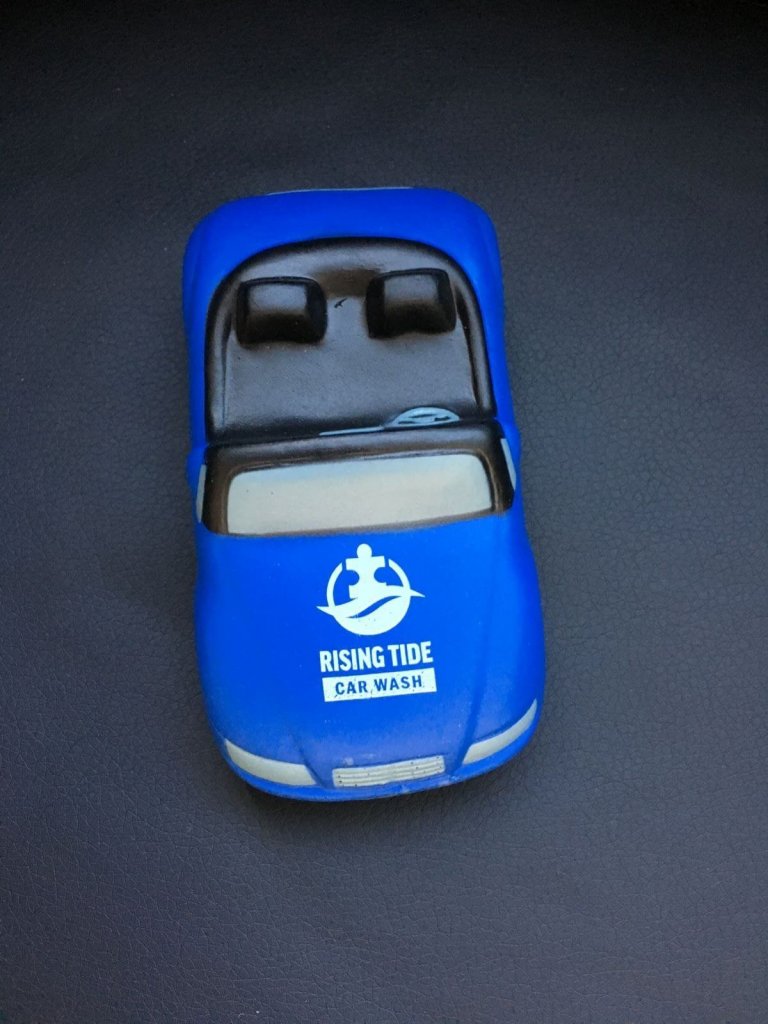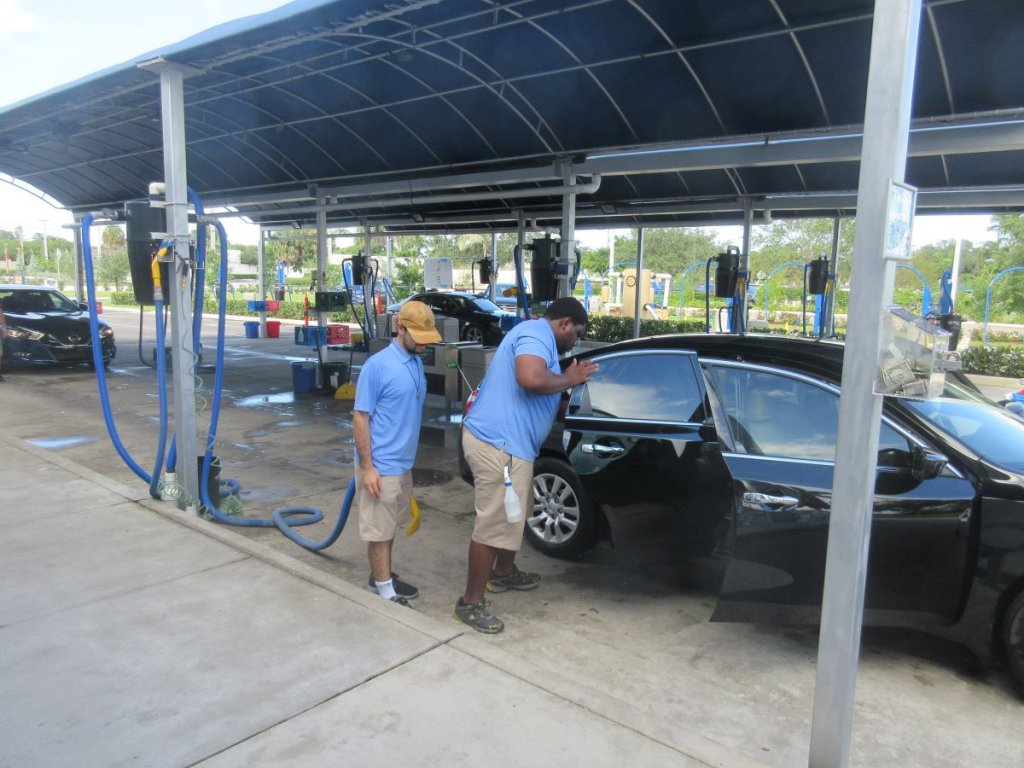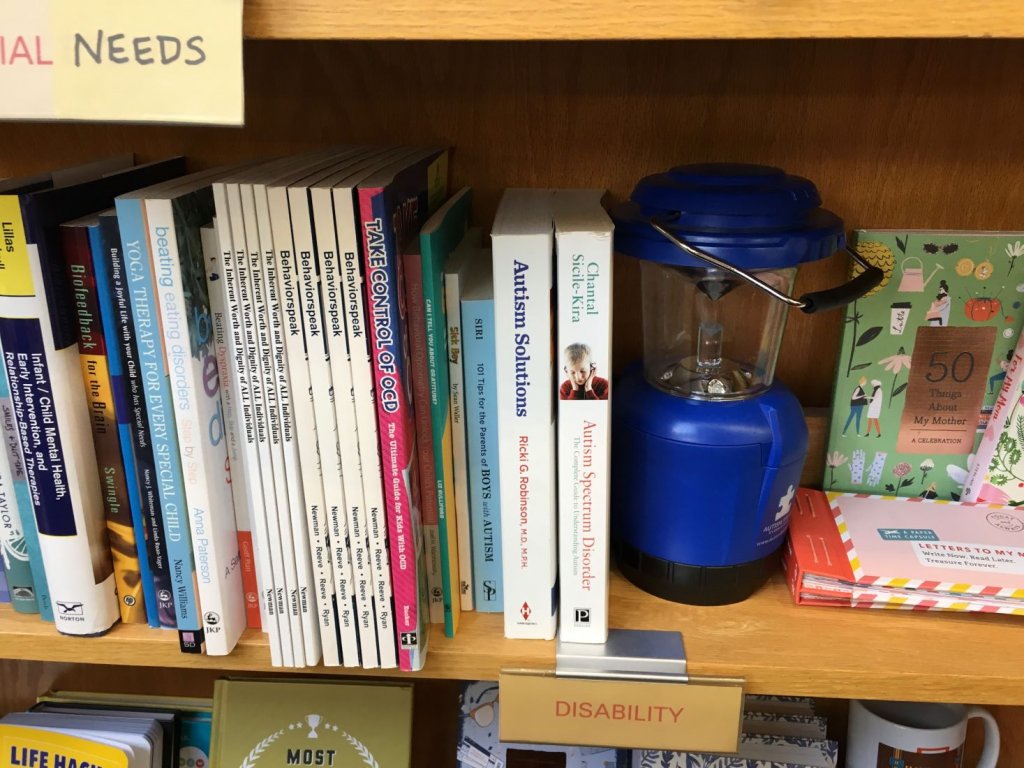Big Al’s Best
Milpitas, CA 95035
Website: https://big-als-best.com/
bigalsbest@gmail.com
Name of contact: mother, Joanna Jaeger and son, Alex “Big Al” Jaeger
Phone: 408-946-1609
“many different jobs in small chunks-including garden store, serving lunch at a senior citizen center, work in a food pantry, making toffee and creating/calligraphing greeting cards”
Brief description of “business:”
Most sites visited in this research study represented a “type” of business, including cafes, a car wash, t-shirt company, sock company, a doll re-sale store, etc. What is unique about Big Al’s is that it is actually a collection of many things. In mother, Joanna’s words, “It is a collection of activities I have pulled together for my son in his adult life,” including a more “traditional job” one day a week job at Orchard Supply Hardware (sweeps, waters plants, takes cob webs down), volunteer work at a senior center serving lunches, and working in a food pantry. Al and his mom also make and sell toffee treats out of their home kitchen; they also make greeting cards (which they sell to local stores on consignment), and they do calligraphy for cards. In addition to the toffee and cards, Alex can also do small jobs like paper shredding, making deliveries, labeling or stamping bags. He does his best when he works for short amounts of time (1-2 hours) and most of the time has the support of a parent or support staff so they can be pretty flexible and look for many little opportunities around their community.
Reason for this approach to work:
Mother, Joanna observes, “Once school ends, there can be almost nothing —waiting lists, no programs, they just go to the food courts to hang out or sitting in front of computer or video games all day.” She tried to continue with as much structure as possible even after school ended. To be sure that he had something to get up for and to do every day. Jobs, volunteer work, household chores, working out at the gym, all were put on the weekly schedule so he would know what to expect. She notes her son’s strengths and his ability to “do things in small chunks.” Mom felt he can do a lot but an 8-hour work day wasn’t for him. Many programs focus on the goal of full time employment and meaningful independence but those goals are a bit out of reach for Alex. Joanna says her plan has been to focus on “micro local things” since geography and traffic and transportation can huge issues in Silicon Valley.
One idea she has is to create a work force of people like her son who can go in to local small businesses a few hours per week to do things like shredding, filing, sweeping, picking up lunch orders, running errands like going to the post office, and other task-oriented jobs-. She notes that there are many businesses clustered in one area (a strip mall or office complex) where there might be lots of little jobs that no one is really competing for. Lots of places have those kinds of jobs. They can go and become a support crew for all the businesses. If disbursed, one to each business, each employer gets to know the person and his or her capabilities.” A support person could probably provide support and transportation for a small group of individuals with disabilities and maybe some of those people might end up being hired directly by one of the businesses they support.
How did business start? (According to website):
“Big Al’s Best was started by Joanna Jaeger to create an opportunity for her son, Alex, to have meaningful work and activities to fill his adult life. Alex is a young man with autism who makes delicious toffee and creates greeting cards and artwork that features his beautiful calligraphy. (Their first product, Dark Chocolate Almond Toffee is made in their home kitchen under their Cottage Food Operation (CFO) license.)
Alex has always had beautiful printing so we decided to expand our products to include greeting cards and art work in addition to the toffee, that features his beautiful calligraphy.
One of the most important parts of this venture is the opportunity it gives us to connect to our community and share Alex’s talents. We have partnered with over a dozen local shops who carry the cards and art work.”
Number of employees: 1
Business Structure/Payment of Employee: Business is set up in mom’s name and it is a family business. Alex is paid when he completes small tasks
Description of Visit/Interview with mother: I met Joanna at the senior citizens’ multi-service center near their home in Milpitas, CA. We met in the garden as Alex, age 25, prepared to serve lunch to the participants who were mostly elderly Asians. After the interview, I observed Alex in the kitchen, met his job coach, Kelly, then walked across the street to observe the garden store where Alex works an additional day per week.
Joanna was engageable, likeable, forthcoming and very willing to share her experiences and observations. She shared many lessons learned and expressed a willingness to connect with other parents and business owners involved in similar ventures. She notes that her past professional training was useful in her work with her son. “I was a training manager—I know how to do task analysis (think about how we can break down a job or create a system or procedure that will allow him to do it independently)
Lessons Learned/Observations:
- This array of work experiences help connect Alex to the community (she recounted a story when they were out for pizza and people she had never met came up to Alex to say hi)
- Working in shorter, 2-4 hour chunks, are right for Alex and also give Joanna flexibility and respite
- She has found it helpful when looking for job coach/support staff to advertise for a Personal/Family Assistant rather that looking for someone with specific disability experience. This has allowed them to meet a broader range of people and build variety and flexibility into Alex’s program.
- Basic self-care and management (toileting, hygiene, following simple instructions, not running off) are important to get in place as you prepare your child for employment and other community participation. These simple things can be real barriers to success if not addressed early.
- Really focus on all the things your child CAN do. So many systems and supports are focused on deficits and needs so sometimes it is hard to shift gears to bring attention to your child’s strengths. Do an inventory of all the little things they can do, household chores, computer skills, etc. and also note their characteristic that would make them a valued employee or volunteer like attention to detail, reliability, desire to please, etc. You know your child better than anyone.
- Look at school and in your neighborhood for the little jobs that no one wants to do or don’t get around to. Each individual task is a job (set up chessboards for one of the teachers in his old school; filed sheet music for music teacher). Friends and neighbors bring us bags of their papers that need shredding and we charge them $10/bag. Does a dog need walking or plants need watering? Household chores can translate into jobs outside the home.
- We all need to feel we are making a contribution, have a sense of purpose and awareness of “How am I helping.” We don’t need to be focused on making our child happy, better to give them an opportunity to contribute to have meaning and purpose in their daily lives. She cites the work of Dr. Peter F. Gerhardt at the EPIC School in Paramus, NJ (http://www.epicschool.org/about-epic/), noting the importance of children learning manners early on or this will be in obstacle to employment. “Our kids are great but when in the work place, a big issue is that they don’t have very good manners or basic social graces—this may seem like a minor issue but it is huge.”
- Many employers might want to hire people with disabilities but are afraid and need to be encouraged and prepared and supported. Sometimes minor changes in a workplace can make a huge difference in their ability to be successful. Joanna points out that we wouldn’t fire a typical employee for such a behavior or for a “small mistake” like spilling coffee on someone while serving (Alex never has, but others have done this). Sometimes the reaction is, if a person with disabilities makes a mistake, we never let them have the opportunity to do it again. I, for one, have burned garlic bread many times! You would never say I am never allowed to use oven anymore!
- Just do it! Wherever you go every day (i.e. small businesses), scope it out, talk to people…find or create a job! There are small business owners may have jobs they are not getting to. The “gig economy” opens up some of these possibilities. One thing that inspired me was a YouTube video—about a profoundly disabled young man—he was an errand boy for his neighborhood—he went to each shop, and said, “Hello, do you need anything? “ (Post office, pick up dry cleaning… (concierge type services) He became a welcomed and valued part of the community with many people who cared about him and gave him opportunities to be helpful. Maybe even approach your local Chamber of Commerce to see if you can talk to local business leaders about the possibility of giving your child an opportunity to work. Volunteering in the community is a great way to build skills and develop relationships. Churches, parks and recreation programs, non-profits and schools are all good places to look.
[Addendum: “A few things have changed since you were out last summer. Alex’s paid job at the garden center ended because the company closed all the stores. When we learned that was happening I approached the staff at the Senior Center and our local Parks and Rec and said that Alex would have some more volunteer time available if anyone needed any extra help. They ALL responded enthusiastically and now Alex volunteers at the community preschool, the Sports Center, the Teen Center and the Library! I was so pleased at the response and he is now doing even more and interesting little tasks throughout the week.”]




